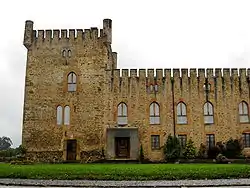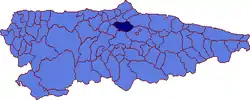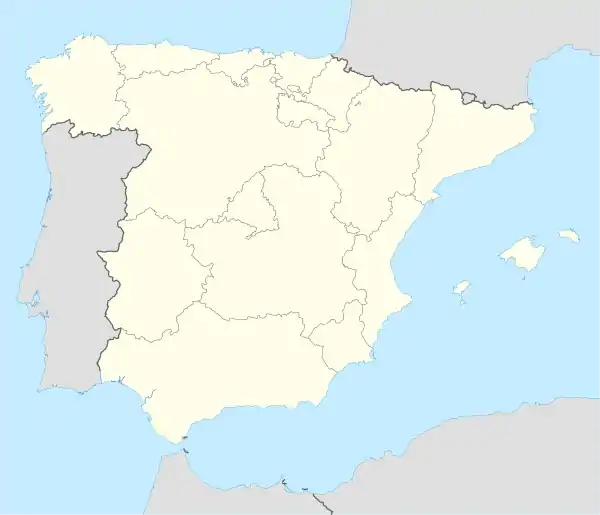Llanera, Asturias
Llanera is a municipality in the Autonomous Community of the Principality of Asturias, Spain. It is bordered on the north by Gijón and Corvera de Asturias, on the south by Oviedo, on the east by Gijón and Siero, and on the west by Illas and Las Regueras. Its capital is located 11 km from Oviedo, 20 km from Avilés, and 22 km from Gijón.
Llanera | |
|---|---|
 Palaciu de Villanueva en San Cucao, council of Llanera, Asturias, Spain. | |
.svg.png.webp) Coat of arms | |
 | |
 Llanera Location in Spain | |
| Coordinates: 43°28′N 5°56′W | |
| Country | |
| Autonomous community | |
| Province | Asturias |
| Comarca | Oviedo |
| Judicial district | Oviedo |
| Capital | Posada de Llanera |
| Government | |
| • Alcalde | Gerardo Sanz Pérez (PSOE) |
| Area | |
| • Total | 106.69 km2 (41.19 sq mi) |
| Highest elevation | 317 m (1,040 ft) |
| Population (2018)[1] | |
| • Total | 13,676 |
| • Density | 130/km2 (330/sq mi) |
| Demonym(s) | llanerense |
| Time zone | UTC+1 (CET) |
| • Summer (DST) | UTC+2 (CEST) |
| Postal code | 33424 |
| Official language(s) | Asturian, Spanish |
Renfe, the national railroad organization, has stations in Lugo de Llanera, Villabona y Ferroñes.
The municipality has an important industrial sector. There are industrial parks at Silvota and Asipo.
There is a penitentiary in Villabona.
Lugo de Llanera was founded as a Roman settlement, named Lucus Asturum. It is situated at the fork of the Roman roads to Astorga and Cantabria.
Spanish football international Santi Cazorla was born there.
Parishes
|
|
|
References
- Municipal Register of Spain 2018. National Statistics Institute.